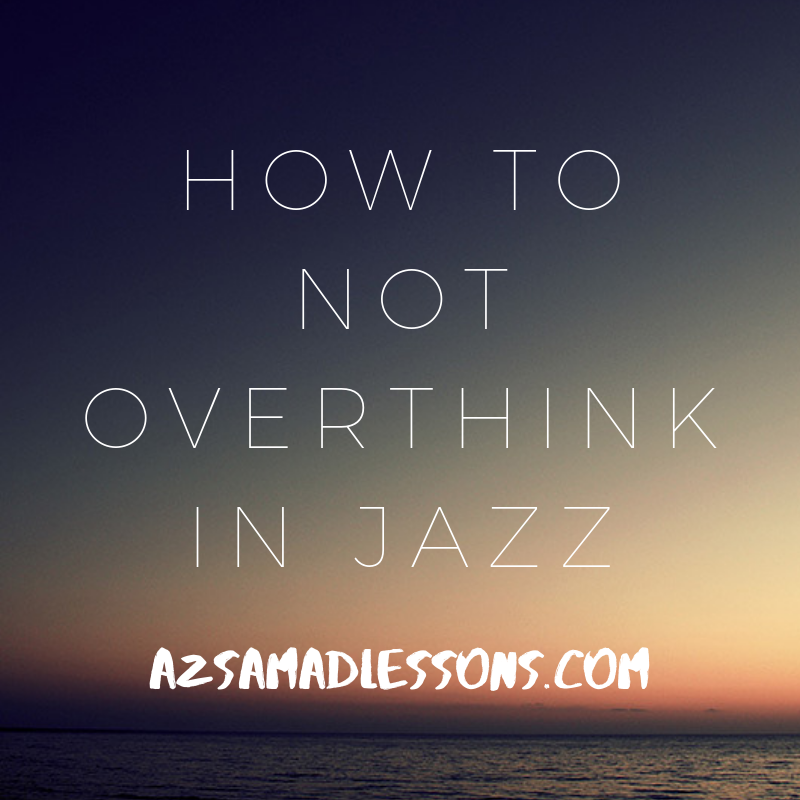
Recently I received some questions on this topic from a follower on Facebook. I decided to answer them via a video (embedded below). Here’s a summary of the main ideas (but for more info, watch the video too)
Question 1: “How do I overcome overthinking and uncertainty in playing live?”
The formula that I use to describe my personal process (that I recommend to my private students too) is: P+U=C
This means:
Preparation+Understanding= Confidence
In short, when you have all the preparation for a performance & have an understanding of the material (the music theory, the form, the meaning, the style, the context), you will have confidence to perform (and not overthink) during the actual performance. Most people who overthink often do not know the material that well, and that’s why they are still thinking during the show. If you’ve done the work, then you can enjoy (and be in) the moment more during the performance.
Question 2: “Is it alright if I actually preplan my solo ideas days/weeks before the play?”
Yes and No.
There are two approaches that you could use:
1) Plan a solo
This means you actually compose a solo beforehand & memorise it. This is not “Jazz” to most people since it’s not an improvised solo. But, I remember a teacher I had in college said that the bottom line for a performance (especially for a young student) is that you perform your best within the context that you’re in. If that means that you compose a solo and play it from memory, if it serves the music and makes the audience happy – it’s okay.
This is really a question of intent though, so if the main intent is to learn to improvise, then this approach is not viable.
2) Plan the concepts not the licks
This is something that works within the jazz idiom more. Almost every player that I like has certain concepts that they use to create lines over certain chords and chord progression. There’s nothing wrong with this as the concepts guide your note choices but not limit the actual permutation of lines (and creativity!) you could create in your solo.
Question 3: “Which ideas are preferable for during a play. Minimalism or Technicality over the treatment of the horizontal harmony (scales, arpeggios and stuff)?”
Whatever that sounds good and what fits the song & the moment.
In the end, it’s about the music. Do anything necessary (or possible) within your ability to make good music.
“You do the work first so that you can enjoy the performance” – Az Samad
If you’d like the book I mentioned in this video, you can get it at http://bit.ly/azsamadpent